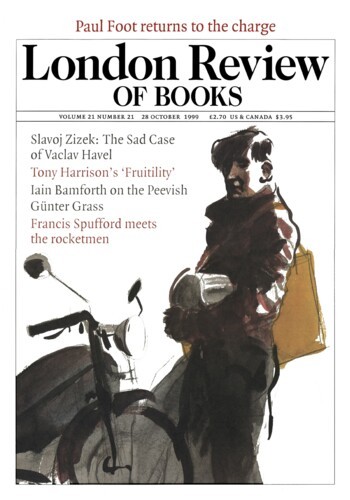Shoy-Hoys: The not-so-great Reform Act
Paul Foot, 6 May 2004
No one disputes that the British electoral system before 1832 was a mockery of representation. Members of Parliament did not want or pretend to be representative: the word ‘democracy’ conjured up in the minds of most of them the spectre of the French Revolution and the guillotine. Membership of Parliament was largely in the gift of the rich. Property was represented, not people. A...





